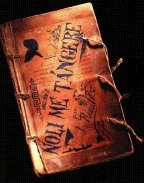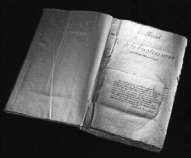
izal's first novel -- the Noli Me Tangere-- is a scathing, full-scale indictment of the Philippine political and religious regime. In this novel, Rizal tried to do what no one has been willing to do -- he replied to the calumnies which, for centuries, have been heaped upon us and our country; he described the state of our society, our life, our beliefs, our hopes, our desires, our laments, and our grievances. And what is surprising is that he has unmasked the hypocrisy, which under the cloak of religion, came among us to deprive us, to brutalize us. Rizal distinguished the true religion from the false, from the superstitious, from that which traffics with the Sacred Word to extract money, to make us believe in foolishness which Catholicism would blush at if it had knowledge of it. Moreover, he unveiled what lay hidden behind the deceptive and brilliant words of our government. Rizal did not let his fellowmen off the hook, though. He had also told our fellowmen of our faults, our vices, our culpable and shameful apathy with regards to these miseries. It may be noted that the facts Rizal had related are all true and real.
The facts Rizal brought to his fellowmen's attention through Noli Me Tangere:
The corruption and brutality of Spanish priests and the injustices to the Indios.
The Friars have made the Catholic religion an instrument for enriching themselves and perpetuating themselves in power by seeking to coerce the ignorant Filipino in fanaticism and superstitions instead of teaching them true Catholicism.
The Noli Me Tangere is, therefore, not merely an attack on the Spanish colonial regime. It is a charter nationalism. It calls on the Filipino to recover his self-confidence, to appreciate his own worth, to return to the heritage of his ancestors, to assert himself as the equal of the Spaniard.
In his novel, Rizal has given a sort of encouragement to his countrymen to struggle against their bad qualities, and afterwards they have reformed.
The title of Noli Me Tangere is a Latin phrase, which means "Touch Me Not." Basically this phrase was not originally conceived by Rizal, for he admitted taking it from the Bible.
It is from the book of St. John (Chap 20:13-17). It was said that on the First Easter Sunday, St Mary Magdalene visited Jesus in the tomb, who had just risen from the dead.
"Touch Me Not, I am not yet ascended to my Father, but to go to my brethren, and say unto them, I ascend unto my Father, and your Father, and to my God and your God."
synopsis
main points
characters
[back to top]
[el filibusterismo]
[his masterpieces]











